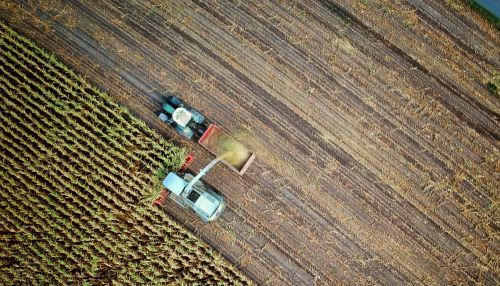
28 July 2023
NFU Cymru leaders have announced that they will not take part in Wales' new Sustainable Farming Scheme (SFS) due to tree-planting rules they deem too complicated and economically unfeasible. The SFS will require farms to adopt actions that benefit the environment, including planting trees on 10% of their land. The Welsh government plans to launch a third consultation on the proposals before the final scheme is unveiled in 2024.
COP28 plans to focus on sustainable land-use systems, including soil management, as part of its agenda to combat climate change. It is promoting food systems and agriculture that are resilient and environmentally friendly, and encouraging nations to include plans for reducing food system emissions in their Nationally-Determined Commitments (NDCs).
First Milk, a dairy cooperative, has announced a partnership with Yeo Valley Production to implement regenerative farming practices. The collaboration aims to improve soil health, biodiversity, and reduce carbon emissions in the farming process, which aligns with consumer demands for sustainable and environmentally friendly products.
A proposed quarry extension in Kent has raised concerns about the potential destruction of ancient woodland, including the important ancient soils that support unique ecosystems. The Woodland Trust and other environmental advocates fear it could affect biodiversity and the storage of carbon in the area,but the company involved said ancient soils would remain.
Scientists warn that successive heatwaves pose a threat to food production as they impact natural ecosystems and farmed land, especially soils. This will reduce crop yields and affect food availability and prices globally. Severe heat waves, including those in Europe and the UK, have already caused crop failures and loss of yield, and such events are expected to become 12 times more frequent by 2040.
Argentina’s drought has been relieved by rainfall and has replenished soil moisture, allowing for 70% of the areas planned for wheat crops to be planted. This is important since Argentina is a major global supplier of wheat and a significant international exporter of corn.
New research has found that pesticide use has harmful effects on soil biodiversity, causing significant damage to global biodiversity and posing a threat to ecosystem health. The study supports recent policies, like the European Green Deal, which aim to reduce pesticide use in agriculture to protect biodiversity.
A study from the University of Birmingham reveals that certain synthetic nitrogen fertilizers used on UK farms release ammonia gas into the atmosphere, with some emitting as much as 77% of the applied fertilizer. These ammonia emissions exceed expected thresholds, posing ecological and health concerns, with agriculture being the main source of ammonia emissions in the UK.
A new report sets out ways to bridge the gap between livestock emissions and net zero targets. The report, by the Centre for Innovation Excellence in Livestock, emphasized the need for innovation to achieve net zero goals by 2050. Innovations in manure management, soil carbon sequestration and nutrient circularity were highlighted as key areas to mitigate emissions.
On the Horticulture Week Podcast, soil scientist Tim O'Hare emphasizes the impact of soil on climate change. He discusses how soil compaction remains a significant issue during construction, but there's growing awareness and changes in construction practices to address it. Tim also emphasizes the role of the government in protecting soils.